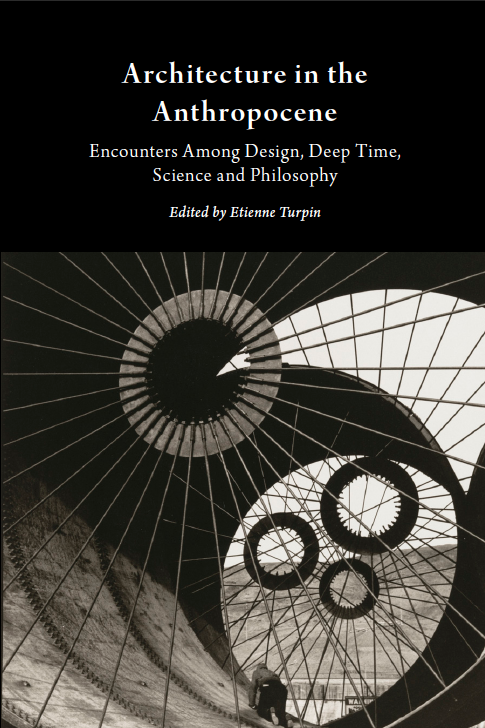Architecture in the Anthropocene: Encounters Among Design, Deep Time, Science and Philosophy
edited by Dr. Etienne Turpin, Vice-Chancellor’s Postdoctoral Research Fellow, SMART Infrastructure Facility
(Ann Arbor: University of Michigan Publishing/Open Humanities Press, December 2013)

Recent research regarding the significance and consequence of anthropogenic changes to the earth’s land, oceans, biosphere and climate have demonstrated that, from a wide range of scientific research positions, it is all but certain to conclude that humans have entered a new geological epoch, their own. First labeled the Anthropocene by the Dutch chemist Paul Crutzen, the consideration of the merits of the new epoch by the International Commission on Stratigraphy and the International Union of Geological Sciences has started to garner the attention of philosophers, artists and designers, legal scholars, as well as an increasing number of researchers from a range of scientific backgrounds.
The edited collection Architecture in the Anthropocene: Encounters Among Design, Deep Time, Science and Philosophy intensifies the potential of this multidisciplinary discourse by bringing together essays, conversations, and design proposals that respond to the “geological imperative” for contemporary architecture scholarship and practice. While geologists and stratigraphers continue to debate the scientific merits of the Anthropocene thesis, the collection Architecture in the Anthropocene invites readers to engage this emerging discourse through a carefully selected presentation of theoretical inquiry, historical research, and contemporary design. Contributors to the volume include Nabil Ahmed, Meghan Archer, Adam Bobbette, Emily Cheng, Heather Davis, Sara Dean, Seth Denizen, Mark Dorrian, Elizabeth Grosz, Lisa Hirmer, Jane Hutton, Eleanor Kaufman, Amy Catania Kulper, Michael C.C. Lin, John Palmesino, Chester Rennie, François Roche, Ann-Sofi Rönnskog, Isabelle Stengers, Paulo Tavares, Etienne Turpin, Eyal Weizman, Jane Wolff, and Guy Zimmerman.
Open Humanities Press is committed to peer-reviewed, scholarly, open access publishing. You can download this book free of change online.
You can also order a paperback copy of the book here.
Please contact Etienne Turpin for more information.
